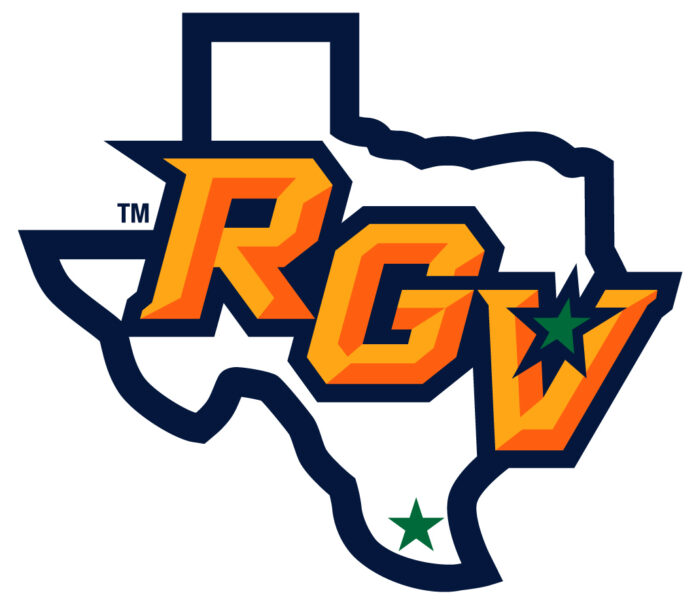EDINBURG — Another domino fell Thursday morning as the Western Athletic Conference, home to the UTRGV Vaqueros, announced the suspension of fall sports, becoming the latest in a succession of NCAA Division I conferences to stall competition due to the COVID-19 pandemic.
The WAC board of directors voted to suspend all fall championship and non-championship athletics competition through the end of the calendar year. The move affects fall sports at UTRGV like cross country, golf, men’s and women’s soccer, tennis and volleyball.
“It’s certainly a tough day, a tough day for our young people. As we’ve watched the national landscape over the last several months and several weeks, you can see where things were trending,” said UTRGV vice president and director of athletics Chasse Conque. “But once it hits close to home, once you have to share this news with your young people — our coaches being on the front line of that — it hits home and becomes very real to our student-athletes. Today, from that standpoint, is very tough.”
In a news release, WAC commissioner Jeff Hurd said the health and safety of student-athletes, and many others associated with athletics programs, is the highest priority.
“It obviously was a difficult decision, and not one made lightly. But it was one made after extensive discussion and consideration of all relevant factors as well as input from conference administrators and the Medical Advisory Committee,” Hurd said.
While the WAC has suspended fall sports, the conference plans to determine a path for fall sports to be played in the spring. At the moment, basketball, which splits its season between fall and spring, will be postponed through the end of October pending Board discussion on winter athletics competition.
“It sounds easier said than done as far as moving all your sports into a spring season. There’s complexities that will make it challenging, but we’re going to do everything in our power to try to put our student-athletes in a position to compete in some form or fashion this (school) year,” Conque said. “We want to, we want to do it safely, and what you do is hope as a country and as a world, we start seeing this thing subside.”
The WAC is one of 19 NCAA DI conferences to suspend fall competition. The WAC joins the America East, Atlantic 10, Big East, Big South, Big Ten, Big West, Colonial Athletic Association, Ivy League, MAC, MAAC, MEAC, Mountain West, Northeast, Pac-12, Patriot League, Summit League, SWAC and WCC in suspending or canceling fall sports.
The possible long-term effects from COVID-19 was among the biggest factors suspending fall sports. According to multiple recent reports, myocarditis, or inflammation of the heart muscle, has been found in at least five Big Ten Conference student-athletes and in several others across different conferences.
Conque said the unknown variables aren’t worth jeopardizing a student-athlete’s health, safety or future.
“I think that’s a huge piece of it. As you look at so many of the unknowns, we don’t know what the long-term effects are,” Conque said. “There was a time and place where folks felt that younger people were somewhat immune or didn’t have lingering consequences or effects, and we’re learning that’s not necessarily the case. You take in that data; you take in that information, and at the end of the day, we all love sports, we all want to get back on the field and back on the court, but it’s not worth the risk when we have so many unknowns that we still have to figure out answers to.”
The UTRGV women’s soccer team, which was supposed to be practicing Sept. 10, was the first team on campus to find out about the suspension. Glad Bugariu, the Vaqueros’ head coach, broke the news to his team Thursday morning through a video-conferencing application.
“It was a hard message to deliver to our players. You could see a lot of sad faces on the Zoom call, some shocked faces, but most of them knew that the WAC would be affected by the national trend,” he said. “But, ultimately, this is probably the best decision we could have made. We keep them here on campus, it’s safer, there’s lack of travel, we can also put them in an environment where they’ll benefit for the long term in an academic and athletic standpoint. I think, overall, I’m pretty satisfied with the decision. I know there’s some disappointment, but at the same time, there’s lots of positives that we can build from.”
Even without sports, UTRGV student-athletes will remain living on or off-campus and will continue to follow UTRGV and NCAA safety protocols, such as daily screening, regular testing and practicing social distancing. The WAC’s latest decision also ruled each institution will be able to determine conditioning, strength training and practices at their discretion.
Conque believes UTRGV athletics is in position to bounce back after dealing with unprecedented adversity.
“This was a difficult decision, but one made with our student-athletes’ health and welfare at the forefront,” he said. “The last few months have dealt us considerable adversity, but I am confident that we will work through these challenging times and emerge stronger. The future remains bright for UTRGV athletics and the Rio Grande Valley.”





